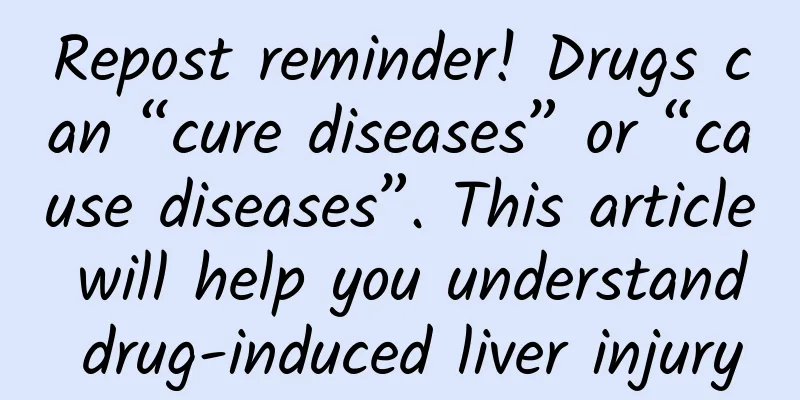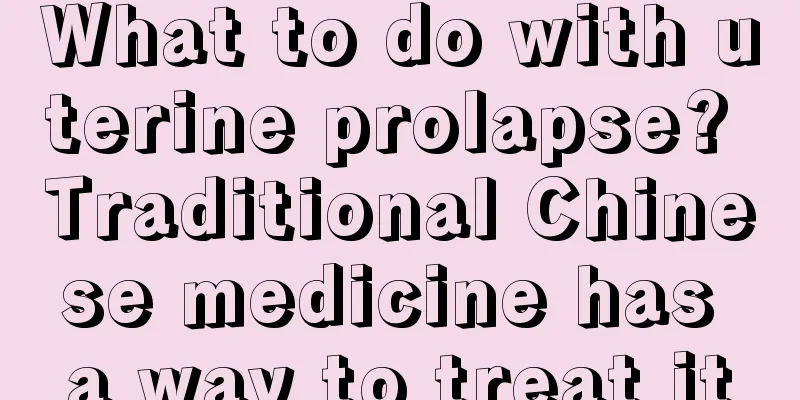Repost reminder! Drugs can “cure diseases” or “cause diseases”. This article will help you understand drug-induced liver injury

|
The liver is the busiest "chemical processing factory" in the human body, responsible for important functions such as detoxification, metabolism, and synthesis. However, this powerful organ may also be injured by our "treatment" behavior - Drug-Induced Liver Injury (DILI) is becoming a global health hazard, which can lead to acute liver failure or even death in severe cases. Today, let Loudi Central Hospital take us to uncover the mystery of this "invisible killer". 1. What is drug-induced liver injury? Drug-induced liver injury refers to liver damage caused directly or indirectly by drugs or their metabolites. 2. Which drugs are most likely to damage the liver? Beware of these "high-risk lists" Currently, there are more than 1,100 drugs that have been identified as potentially causing drug-induced liver injury, including non-steroidal anti-inflammatory drugs, anti-infective drugs (including anti-tuberculosis drugs), anti-tumor drugs, cardiovascular and cerebrovascular system drugs, hormone drugs, biological agents, health products, dietary supplements, Chinese herbal medicines, etc. 3. The body sends these signals, which may be the liver calling for help The symptoms of drug-induced liver injury are subtle and varied, and can be easily mistaken for "fatigue" or "cold" Early stage: fatigue, loss of appetite, nausea, itchy skin; Progressive stage: jaundice (yellowing of the skin and/or sclera), darker urine, right upper abdominal pain; Severe symptoms: coagulation dysfunction (such as bleeding gums), confusion (hepatic encephalopathy), ascites, etc. 4. What should I do if liver damage occurs? 1. Stop taking the medicine immediately and go to the hospital for treatment as soon as possible; 2. Supportive treatment: pay attention to rest, supplement with adequate calories, protein, and multiple vitamins to promote liver cell repair and regeneration; 3. Rationally choose liver-protecting drugs: Liver-protecting drugs should be used under the guidance of a specialist, and you cannot choose to use multiple liver-protecting drugs at the same time. 5. Prevention is better than cure: Five rules for liver protection 1. Do not use medication blindly: Avoid taking medications together, especially repeated use of cold medicines and painkillers; 2. Use the drug with caution in special populations: Children, the elderly, and patients with chronic liver disease should strictly follow the doctor's instructions to adjust the dosage; 3. Regular monitoring: For patients who take medication for a long time, check liver function every 3 to 6 months; 4. Look at "natural" rationally: Chinese herbal medicines must be guided by a regular Chinese medicine practitioner, and do not trust folk prescriptions; 5. Beware of “health product traps”: choose products with national certification marks and avoid overseas purchases of products with unknown ingredients. Drug-induced liver injury is an "avoidable war". Only by raising awareness of drug safety and following the principles of "using drugs when necessary, using drugs according to dosage, and monitoring regularly" can drugs truly become guardians of health. The liver cannot speak, but its health is worth your active care! Source: Loudi Central Hospital Follow @湖南医聊 to get more health science information! (Edited by ZS) |
Recommend
What's wrong with having bad breath during confinement?
Dental health is also a part that everyone needs ...
What are the ways women masturbate?
Men are lustful, but many women are actually quit...
What to eat to relieve diarrhea in pregnant women
Pregnant women will basically encounter diarrhea,...
Why does my period only last two days?
Irregular menstruation will have a certain impact...
Will medical abortion loosen the vagina?
The tightness of the vagina is actually related t...
What medicine should my wife take for her sexual frigidity?
Sexual life is indispensable for couples, because...
What should women eat to improve their ovaries?
Why does women's skin become so bad? As more ...
The best age to have a baby
Many female friends, with the progress of society...
How to regulate menopause
The symptoms of menopause are generally more obvi...
What is the most accurate breast examination?
What is the purpose of breast examination? In tod...
Can I use laser to remove moles while breastfeeding?
During breastfeeding, you must be aware of some p...
What is lobular hyperplasia of the breast?
Lobular breast hyperplasia is actually a common d...
Irregular menstruation
Nowadays, more and more women are experiencing me...
Can magnesium sulfate be used to reduce inflammation after labiactomy?
The labia is a protective barrier located at the ...
What to eat to protect the uterus
The uterus is very important to our female friend...









